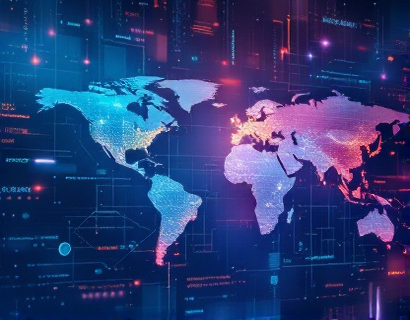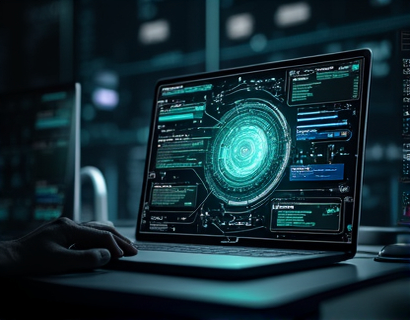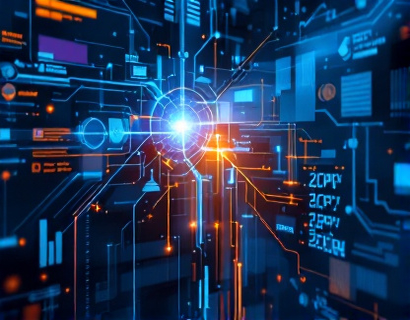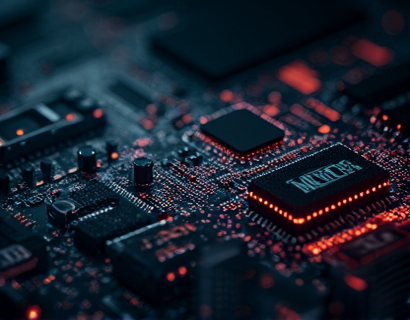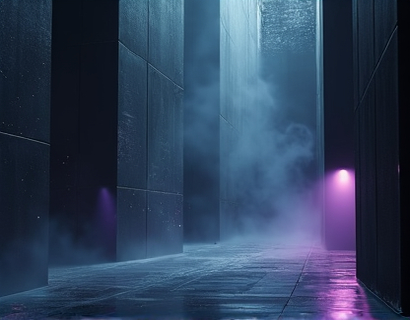Revolutionizing Memorial Creation: The Synergy of AI and Blockchain for Lasting Tributes
The intersection of technology and emotion has given rise to innovative solutions for creating online memorials that honor the deceased with unparalleled personalization and security. This article delves into the future of memorial creation, exploring how the combination of Artificial Intelligence (AI) and blockchain technology is transforming the way we remember and pay tribute to loved ones. By leveraging these advanced technologies, a cutting-edge platform is enabling bereaved families and individuals to craft secure, personalized tributes that stand the test of time.
Understanding the Need for Advanced Memorial Solutions
The loss of a loved one is one of life's most profound experiences, leaving an indelible mark on those who remain. In the digital age, the desire to create meaningful online memorials has become increasingly prevalent. Traditional methods of memorialization, such as physical monuments or photo albums, often fall short in providing a dynamic, accessible, and secure space for remembrance. The need for a more sophisticated solution has led to the development of online platforms that integrate AI and blockchain to offer bereaved families a unique and personalized way to honor their loved ones.
AI: Enhancing Personalization and Emotional Connection
Artificial Intelligence plays a pivotal role in crafting memorials that resonate deeply with those who visit. AI algorithms can analyze vast amounts of data, including personal stories, photos, and videos, to create a comprehensive and nuanced tribute. This technology ensures that the memorial reflects the unique personality and life journey of the deceased, making the experience more intimate and emotionally engaging for visitors.
For instance, AI can curate a timeline of the deceased's life, highlighting significant events, achievements, and milestones. It can also generate personalized messages or quotes that capture the essence of the individual's character and spirit. By incorporating natural language processing, AI can even simulate a sense of conversation, allowing visitors to interact with the memorial in a more dynamic way. This level of personalization not only honors the memory of the deceased but also provides comfort and solace to those who are grieving.
Blockchain: Ensuring Security and Immutability
Blockchain technology is renowned for its ability to provide secure, transparent, and immutable records. In the context of online memorials, blockchain serves as a robust foundation for ensuring the integrity and longevity of the tribute. Each memorial is stored as a unique block in the blockchain, making it virtually impossible to alter or delete. This immutability is crucial for preserving the authenticity of the tribute and protecting it from unauthorized access or tampering.
Moreover, blockchain's decentralized nature means that the memorial is not stored on a single server, reducing the risk of data loss due to technical failures or cyberattacks. This distributed storage ensures that the tribute remains accessible to loved ones around the world, fostering a global community of remembrance. The use of smart contracts can further enhance the functionality of the platform, automating tasks such as managing access permissions and ensuring that the memorial is maintained according to the wishes of the deceased's family.
Integrating AI and Blockchain for a Seamless Experience
The true power of this platform lies in the seamless integration of AI and blockchain technologies. AI handles the creative and personalized aspects of the memorial, while blockchain ensures the security and permanence of the tribute. Together, these technologies create a holistic solution that addresses the multifaceted needs of bereaved families.
When a user decides to create a memorial, the AI system begins by gathering and organizing content from various sources. This includes personal stories, photos, videos, and other digital assets provided by the family. The AI then processes this content to generate a cohesive and meaningful tribute. The platform can suggest layouts, design elements, and even write personalized messages based on the data analyzed. This not only saves time but also ensures that the memorial is a true reflection of the deceased's life.
Once the memorial is created, it is stored on the blockchain. The family has full control over who can access the memorial, with the option to share links or private keys with trusted individuals. The blockchain ensures that the memorial remains intact and accessible for years to come, providing a lasting legacy for the deceased. Additionally, the platform can offer features such as virtual candles, guest books, and the ability to add new content over time, allowing the memorial to evolve and grow.
Benefits for Bereaved Families
The combination of AI and blockchain offers numerous benefits for families creating online memorials. One of the most significant advantages is the level of personalization. Each memorial is tailored to the individual, capturing their unique story and personality. This personal touch helps to keep the memory of the deceased alive and provides a sense of closure and healing for the family.
Security is another critical aspect. With blockchain, there is no need to worry about the memorial being altered or deleted. The immutable nature of the blockchain ensures that the tribute remains exactly as it was created, providing peace of mind to the family. Moreover, the decentralized storage means that the memorial is protected against data breaches and other cyber threats.
Accessibility is also greatly enhanced. Bereaved families and friends from around the world can access the memorial at any time, from any device with an internet connection. This global accessibility fosters a sense of community and support, allowing people to come together to remember and celebrate the life of the deceased.
Case Studies and User Testimonials
To better understand the impact of this technology, let's look at a few case studies and user testimonials. One family used the platform to create a memorial for their young son who passed away suddenly. The AI curated a timeline of his life, from birth to his final days, including photos, videos, and stories from friends and family. The blockchain ensured that the memorial was secure and would remain intact for generations to come. The family reported feeling a sense of comfort and gratitude, knowing that their son's memory would be preserved in a way that was both personal and secure.
Another example involves a couple who lost each other after a long marriage. They used the platform to create a joint memorial, combining their individual tributes into a single, cohesive tribute. The AI generated a beautiful narrative that highlighted their shared journey, milestones, and the love they shared. The blockchain ensured that the memorial was protected and could be accessed by their children and grandchildren, providing a lasting legacy for their family.
User testimonials consistently highlight the emotional significance and practical benefits of the platform. One user noted, "Creating the memorial was a therapeutic process. The AI helped us organize our thoughts and memories in a way that truly honored my partner's life. Knowing that it's secure and will always be there for our family is incredibly comforting." Another family mentioned, "The platform made it easy to involve distant relatives in the memorial process. It's a beautiful way to keep our loved one's memory alive, no matter where we are in the world."
Future Developments and Potential Expansions
The integration of AI and blockchain in memorial creation is just the beginning. Future developments could include advanced features such as augmented reality (AR) experiences, allowing visitors to virtually visit the memorial in a more immersive way. AI-driven chatbots could provide emotional support to those who are grieving, offering resources and guidance during their time of need.
Additionally, the platform could expand to include features for managing estate planning and charitable donations in memory of the deceased. By integrating with existing financial and legal systems, the platform could streamline the process of honoring the deceased's wishes in these areas as well.
Another potential expansion is the creation of a global network of memorials, where users can discover and connect with others who are remembering the same individual. This community aspect could provide additional support and shared experiences, further enriching the memorialization process.
Conclusion
The convergence of AI and blockchain technology is revolutionizing the way we create and preserve online memorials. By offering secure, personalized, and accessible tributes, this innovative platform is providing bereaved families with a meaningful way to honor their loved ones. As these technologies continue to evolve, the potential for enhancing the memorialization experience is vast, ensuring that the memories of the deceased live on in a way that is both profound and enduring.










